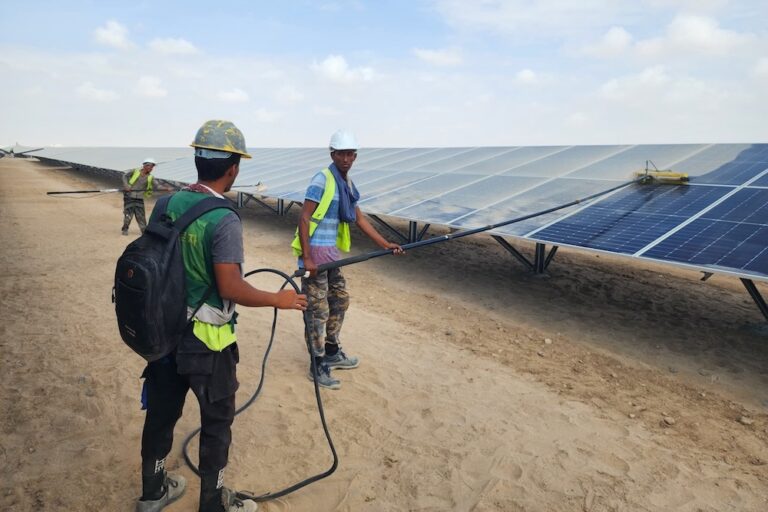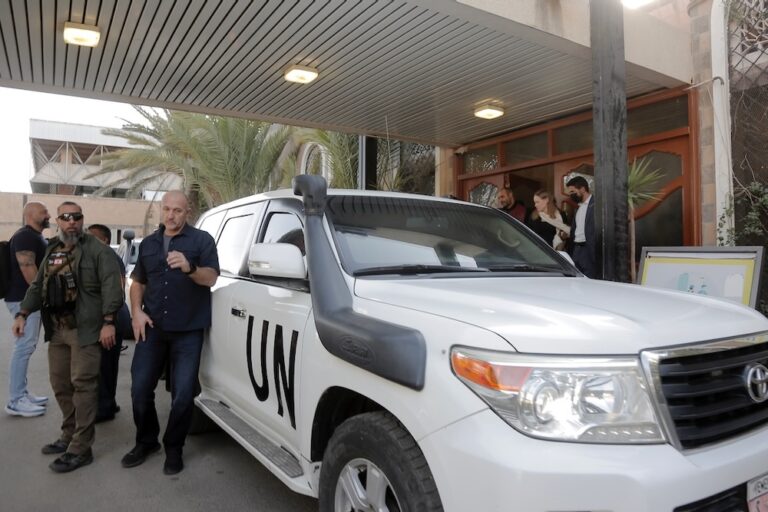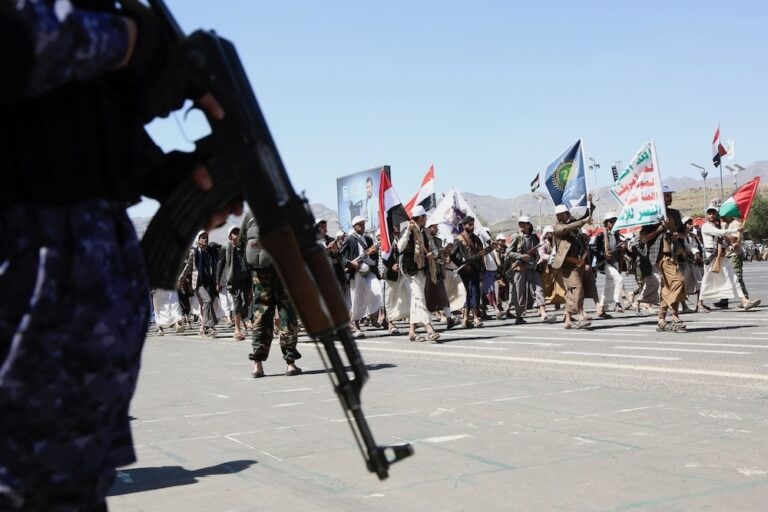Benjamin Wiacek was assaulted near the US embassy in the capital Sanaa while he was covering a demonstration in protest against the anti-Islam film “Innocence of Muslims”, despite saying he was a journalist and showing his press card.
(RSF/IFEX) – 19 September 2012 – Reporters Without Borders is extremely concerned about the deterioration in press freedom in Yemen. Cases of violence against journalists have increased, such as the assault on a French reporter by the Yemeni Central Security Forces while he was covering clashes between protesters and the police outside the US embassy in Sanaa on 13 September.
“We are very concerned for the safety of journalists in Yemen,” the press freedom organization said. “Since the start of this year, several media workers and citizen journalists have been assaulted and/or arrested. Respect for, and the protection of, news organizations constitute a necessary guarantee for freedom of the press in a country such as Yemen, which aspires to democracy.
Benjamin Wiacek, editor of the French-language website La Voix du Yémen and a regular contributor to the French television station France 24 in Sanaa, was assaulted near the US embassy while he was covering a demonstration in protest against the anti-Islam film “Innocence of Muslims”, despite saying he was a journalist and showing his press card.
He was forced to hand over his camera’s memory card in order to get away from his attackers. The attack on the journalist was filmed by a citizen. The footage shows the reporter being taken aside by members of the Central Security Forces. The clip is still available on social network sites.
His case is not isolated. On the same day the Central Security Forces attacked a cameraman from the Al-Sahat Al-Ahlyia network, Mahmoud Al-Zileeyi, while he was also covering the demonstration. Marwan Al-Damadj, head of the Yemeni journalists’ union, told Reporters Without Borders the journalist, whose arm was broken, was receiving treatment in hospital.
The journalist Mohamed Aayeche was summoned by a Yemeni court on 15 September for publishing the names of the soldiers behind an attempt to kill the head of the Yemen Socialist Party, Yassin Said Numan. The summons provoked an outcry from Yemeni activists and journalists, who said it was a serious indication of deterioration in freedom of the press.
On 11 September, soldiers of the Yemeni Republican Guard arrested two cameramen from the Arab Agency for Media, Ali Abdallah Khaled and Abdelrahmane Al-Khaled, as they were reporting on damage to government buildings caused by an attack on the defense ministry. All their equipment and recordings were seized. The republican guard, which is responsible for protecting official buildings, carried out three raids on the agency’s premises. The executive director Marwan Al-Khaled was placed under arrest. However, the journalists were released and their cameras returned later the same day.
In the southern city of Lahadj a day earlier, the military commander of the region ordered the seizure of 20,000 copies of the Sanaa-based newspaper Akhbar Al-Youm, the arrest of its distributor and the confiscation of a bus belonging to the paper. The newspaper’s equipment was returned but the troops destroyed the copies that were seized. The journalists’ union said the moved was linked to articles in the newspaper about terrorist activities in the region.
The repeated attacks by soldiers of the Republican Guard have been taking place against a worrying background, in which journalists are particular targets. On 16 September, a cameraman from the station Al-Synia, Abed-Rabou Al-Hachichi, was assaulted and his car ransacked in the north of the Yemeni capital. The reasons for the troops’ violent outburst were not known. The journalist said he was attacked after they realized he worked for the media.


